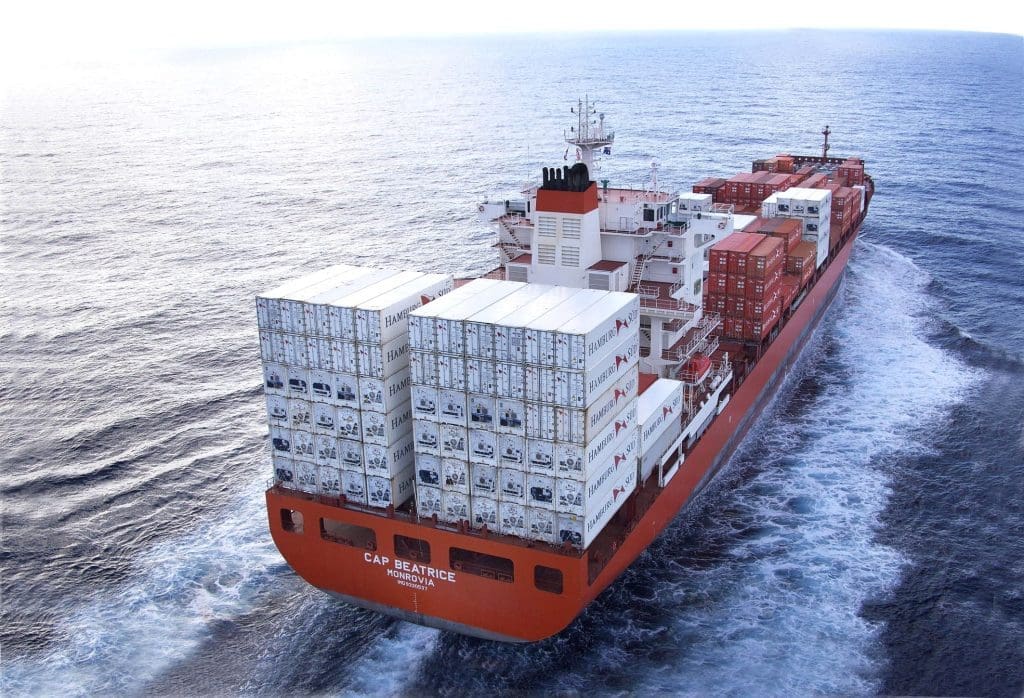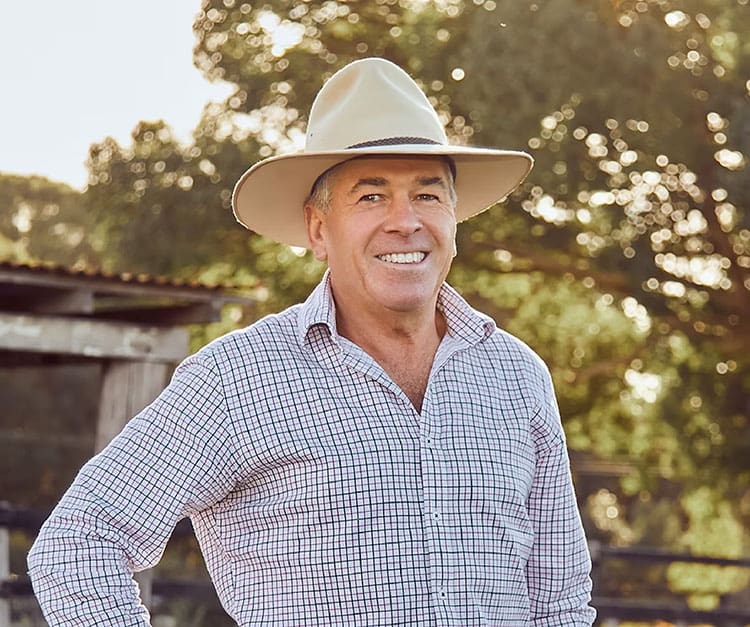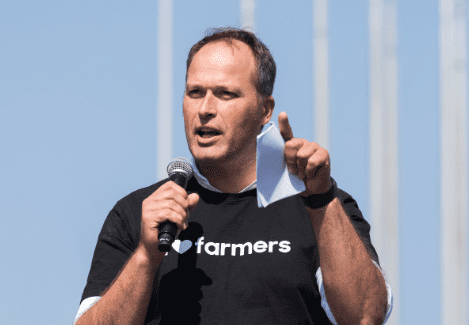RED meat industry groups have reacted to United States president Donald Trump’s move to put a 10pc tariff on imports from Australia, while reiterating that trade will continue with the country that took record amounts of Australian beef last year.
In what he has dubbed ‘liberation day’, President Trump announced a wide range of tariffs for all sectors of the economy from countries across the world.
He singled out Australian beef, saying Australia bans imports of American beef and that America was retaliating. A claim the Australian industry has refuted (see today’s other article).
Red Meat Advisory Council chair John McKillop said it was important to note that President Trump’s measures did not include a ban on beef exports to the US.
“It remains a disappointing decision from the US, in stark contrast to our 20-year partnership under the Australia-United States Free Trade Agreement (AUSFTA),” Mr McKillop said.
“Last year, 2024, was a record year for Australian red meat exports, driven by strong global demand. Australian producers can be assured that we operate in a strong global trading environment with high demand for our red meat from over 100 markets.
“It’s critical to note just how diversified Australia is with our red meat exports. Other major markets include Greater China, Japan and Korea, worth A$3.9B, A$2.6B and A$2.5B respectively. The Middle East / North Africa Market is worth A$2B and offers demand growth opportunities.”
Mr McKillop said the decision would impact US consumers.
“Imports serve as a shock absorber during cyclical supply fluctuations when US meat production is down. This is the case at the moment with their overall herd at 70-year lows due to drought. Cow slaughter in the US was down 23pc in 2024 and expected to decline near 10pc in 2025,” Mr McKillop said.
“This means that imports are critical for the US to supply their domestic consumers. Without Australian lean beef blended with local fatty trim, the US would need to use higher value cuts in their burgers and miss out on valuable export opportunities. This in turn optimises value for US ranchers.”
US has kicked an own goal, Cattle Australia
Cattle Australia chief executive Dr Chris Parker said the logic for the new tariff was flawed and failed to recognise that the US has had access to the Australian market since 2019, provided it could demonstrate its beef came from cattle born, raised and slaughtered in the US.
“These are the same conditions that the US imposes on Australian exporters – reciprocal arrangements are already in place,” Dr Parker said.
“The US industry has not been able to meet these standards and now wish to include beef from cattle born in Mexico and Canada.”
Dr Parker is in Washington this week emphasising that the Australian and American beef supply chains are complementary.
“US beef producers can’t meet American domestic demand and Australia is the preferred supplier to fill the shortfall of high-quality grassfed steaks,” he said.
Ongoing discussions with the US red meat industry
The Australian Meat Industry Council made a similar point to Cattle Australia about US beef being allowed into Australia with country-of-origin verification.
Chief executive officer Tim Ryan said the decision from the President provided an opportunity to move forward.
“We’re obviously very disappointed by today’s announcement but at least we can now begin to work out our path forward with greater certainty,” Mr Ryan said.
“The fundamentals around the Australian meat export industry have not changed. We’ve got a great business model in Australia. We produce a high-quality product that the world wants, and that’s not going to change today.
“We enjoy a great breadth of market access. We export to over 100 countries and we’re not going to find ourselves in a position where meat is processed with nowhere to go.”
Australian beef still in a strong position
Meat & Livestock Australia says it will be working with industry and Government to navigate the new tariff regime. Managing director Michael Crowley said Australian beef was still in a strong position.
“The demand outlook for Australian red meat remains very strong and we maintain favourable market access conditions with over 85 percent of exports covered by free trade agreements,” Mr Crowley said.
“Despite the imposition today of 10 per cent tariff, the US will continue to buy Australian red meat to supplement their requirement for high quality protein.
“MLA will continue working with industry to support the wind back of tariffs and to grow market demand globally. The global market outlook remains very strong for Australian red meat.”
Australia remains a proud trading nation
Australian Lot Feeders’ Association chair Grant Garey said while it was not a favourable outcome it did provide some certainty in what has been a fluid situation.
“This outcome is disappointing for lot feeders, who dedicate significant effort to producing high-quality beef that consumers can enjoy without artificial trade barriers affecting retail prices,” he said
“While there will be an adjustment period as global trade responds to the US Administration’s new tariff regime, Australia remains a proud and experienced trading nation.
“While the US remains a crucial market, our industry and the Australian Government have proactively diversified and secured key trading destinations — including China, Japan, Korea, the UK, and the Middle East — helping to stabilise our position in response to today’s announcement.”
NFF warns against reciprocal tariffs
National Farmers’ Federation president David Jochinke said he spoke to the Prime Minister this morning and outlined that the organisation does not support reciprocal tariffs – which the Prime Minister has said he will not do.
“The Australian agricultural industry supports a considered and measured approach to negotiations with the United States and will work closely with the Government and all sides of politics to seek a resolution to this issue,” Mr Jochinke said.
“The NFF has long championed free and fair trade, not just for agriculture but all industries, recognising its role in global economic growth and stability. Australian agriculture is unwavering in its commitment to this.
“Australian producers are resilient in the face of challenges. Being among the least subsidised farmers in the world has seen the sector become highly efficient and productive.”








HAVE YOUR SAY